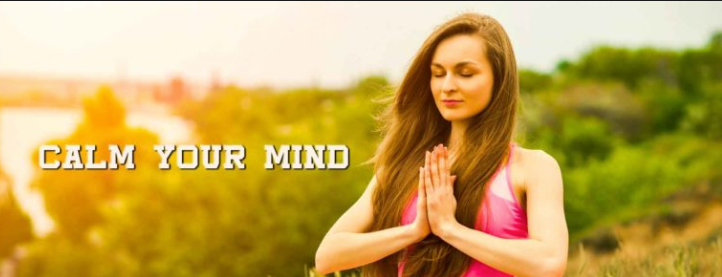Calm Your Mind Natural Ways – Reduce Anxiety Naturally
Types of anxiety is a normal part of life. It’s a part of living in an often-chaotic world. Anxiety isn’t all bad, though. It makes you aware of danger, motivates you to stay organized and prepared, and helps you calculate risks. Still, when anxiety becomes a daily struggle, it’s time to act before it snowballs. Unchecked anxiety may greatly impact your quality of life. Take control by trying out the natural ways.
There aren’t any miracle quick-fix cures or “secret remedies or formulas” that eliminate anxiety. There are, however, many methods, medications, herbs, vitamins, and remedies that may help to diminish symptoms, but None Of Them Cure Anxiety. They may only help reduce symptoms.
Some studies find that it can reduce symptoms of anxiety as effectively as prescription drugs. It’s often used for insomnia. Like other sedatives, it can cause sleepiness and drowsiness, so don’t take it—or valerian, hops, kava, lemon balm, or other sedative herbs—when you are also taking a prescription sedative.
Do Treatment Naturally with Natural Way Control ::
1. Stay active
Regular exercise is good for your physical and emotional health. Regular exercise works as well as medication to ease anxiety for some people. And it’s not just a short-term fix; you may experience anxiety relief for hours after working out.
2. Meditate
A main goal of meditation is to remove chaotic thoughts from your mind and replace them with a sense of calm and mindfulness of the present moment. Meditation is known for relieving stress and anxiety. Research from John Hopkins suggests 30 minutes of daily meditation may alleviate some anxiety symptoms and act as an antidepressant.
3. Don’t drink alcohol
Alcohol is a natural sedative. Drinking a glass of wine or a finger of whiskey when your nerves are shot may calm you at first. Once the buzz is over, however, anxiety may return with a vengeance. If you rely on alcohol to relieve anxiety instead of treating the root of the problem, you may develop alcohol dependence.
4. Stop smoking
Smokers often reach for a cigarette during stressful times. Yet, like drinking alcohol, taking a drag on a cigarette when you’re stressed is a quick fix that may worsen anxiety over time. Research has shown that the earlier you start smoking in life, the higher your risk of developing an anxiety disorder later. Research also suggests nicotine and other chemicals in cigarette smoke alter pathways in the brain linked to anxiety.
5. Leave Caffeine
If you have chronic anxiety, caffeine is not your friend. Caffeine may cause nervousness and jitters, neither of which is good if you’re anxious. Research has shown caffeine may cause or worsen anxiety disorders. It may also cause panic attacks in people with panic disorder. In some people, eliminating caffeine may significantly improve anxiety symptoms.
6. Get some sleep
Insomnia is a common symptom of anxiety. Make sleep a priority by ::
- only sleeping at night when you’re tired
- not reading or watching television in bed
- not using your phone, tablet, or computer in bed
- not tossing and turning in your bed if you can’t sleep; get up and go to another room until you feel sleepy
- avoiding caffeine, large meals, and nicotine before bedtime
- keeping your room dark and cool
- writing down your worries before going to bed
- going to sleep at the same time each night
7. Eat a Healthy Diet
Low blood sugar levels, dehydration, or chemicals in processed foods such as artificial flavorings, artificial colorings, and preservatives may cause mood changes in some people. A high-sugar diet may also impact temperament. If your anxiety worsens after eating, check your eating habits. Stay hydrated, eliminate processed foods, and eat a healthy diet rich in complex carbohydrates, fruits and vegetables, and lean proteins.
8. Practice Deep Breathing
Shallow, fast breathing is common with anxiety. It may lead to a fast heart rate, dizziness or lightheadedness, or even a panic attack. Deep breathing exercises — the deliberate process of taking slow, even, deep breaths — can help restore normal breathing patterns and reduce anxiety.
9. Try Aromatherapy
Aromatherapy uses fragrant essential oils to promote health and well-being. The oils may be inhaled directly or added to a warm bath or diffuser.
Studies have shown that Aromatherapy ::
- Helps you relax
- Helps you sleep
- Boosts mood
- Reduces heart rate and Blood Pressure
———————————–
Few More Other Natural Ways of Practice to Reduce Anxiety and Stress ::
- Exercise – Exercise may help to treat anxiety.
- Meditation – Meditation can help to slow racing thoughts, making it easier to manage stress and anxiety.
- Relaxation exercises.
- Writing.
- Time management strategies.
- Aromatherapy.
- Cannabidiol oil.
- Herbal teas.
:: Disclaimer ::
The sole purpose of these posts is to provide information about the tradition of health care & ayurveda. This information is not intended for use in the diagnosis, treatment, cure or prevention of any disease. If you have any serious acute or chronic health concern, please consult a trained health professional who can fully assess your needs and address them effectively. Check with your doctor before taking herbs or using essential oils when pregnant or nursing.



